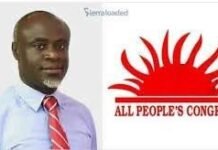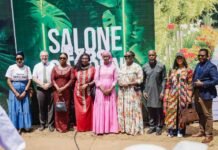By Amin Kef (Ranger)
The 79th session of the United Nations General Assembly debate has commenced and world leaders continue to deliver their national statements. Among them, Sierra Leone’s President Dr. Julius Maada Bio, took the podium as the 13th speaker, addressing the historical injustice of Africa’s underrepresentation at the UN Security Council (UNSC). As Coordinator of the African Union’s Committee of Ten (C-10) Heads of State on UNSC Reform, President Bio emphasized the need for a more equitable representation of Africa in the global decision-making body.
In his speech, delivered on September 24, 2024, President Bio congratulated the newly elected President of the 79th General Assembly, Philemon Yang and expressed gratitude to the outgoing President, Dennis Francis, for his leadership. The President also thanked UN Secretary-General, António Guterres, for his continuous global leadership. He then pivoted to recount Sierra Leone’s journey from a brutal decade-long civil war, where more than 50,000 people were killed, to a nation that overcame its challenges through peace, dialogue and international cooperation.
Drawing from Sierra Leone’s peacebuilding experience, President Bio highlighted his country’s role as an elected member of the UNSC, promoting dialogue, adherence to international law and the protection of civilians. He urged for immediate action in conflict zones like Gaza, Sudan, the Democratic Republic of Congo and Ukraine, stressing that peace and development cannot be achieved without addressing the root causes of conflict and engaging in meaningful dialogue.
At the heart of his address was a call for the reform of the UNSC, nearly 80 years after its creation. President Bio underscored that the current structure of the UNSC is imbalanced, outdated and undermines its legitimacy. He argued that Africa, with its 1.3 billion people and 54 UN member States, has long been marginalized in global decision-making processes. The historical injustices stemming from colonialism, economic exploitation and political marginalization, President Bio said, have left deep scars on the African continent, affecting its development, stability and influence in international affairs.
President Bio’s call for reform was framed by two key documents: the Ezulwini Consensus and the Sirte Declaration. Both advocate for at least two permanent seats for Africa on the Security Council, complete with veto power, as well as two additional non-permanent seats. This, he argued, is essential to reflect the continent’s growing importance in global peacekeeping efforts and its demographic weight.
He pointed to Sierra Leone’s leadership during its August 2024 Presidency of the UNSC, where the nation spearheaded discussions on addressing Africa’s underrepresentation. The President reiterated that Africa’s exclusion from the Council’s decision-making processes is a grave injustice, which must be corrected immediately. “Africa’s voice must be hear, and its demands for justice and equity must be met now,” he declared.
The urgency of these reforms was further underscored by support from prominent international figures, including UN Secretary-General António Guterres, who echoed the Sierra Leone’s sentiments on Africa’s underrepresentation in peace and security matters. This alignment with global leaders amplifies the significance of the reforms being proposed and highlights the growing consensus on the need for change.
President Bio also touched on other critical global issues, such as gender equality, women’s economic empowerment and human capital development. He noted Sierra Leone’s achievements in education, healthcare and legislative reforms, such as the Gender Equality and Women’s Empowerment Act 2023 and the law prohibiting child marriage. These, he said, are part of his Government’s broader commitment to building an inclusive society and ensuring that every girl and woman in Sierra Leone can thrive equally.
The President concluded his address with a call for immediate, collective action to rectify these long-standing injustices. He urged African leaders and global stakeholders to unite in the effort to reform the UNSC, framing it as an opportunity to create a more just world order. “Let us work together to redress this historical injustice and re-create a Security Council that truly reflects the diversity of the world,” President Bio urged.
President Julius Maada Bio’s address at the 79th session of the UN General Assembly was a pivotal moment in the ongoing discussion around UNSC reform. His remarks not only highlighted the historical grievances of Africa but also presented a clear, actionable vision for creating a more equitable global governance system. With growing international support, his call for reform underscores the urgent need to ensure that Africa’s voice is heard in the highest echelons of global decision-making.




